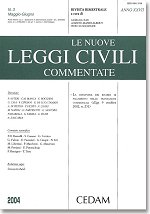On Monday, 12 July 2010, the Council adopted a decision authorising 14 Member States (Spain, Italy, Hungary, Luxembourg, Austria, Romania, Slovenia, Bulgaria, France, Germany, Belgium, Latvia, Malta and Portugal) to participate in the first enhanced cooperation in the history of the European Union, on the law applicable to divorce and legal separation (see the provisional version of the Council’s press release, doc. no. 12077/10, at p. 15).
As we reported in our previous posts, the initiative for an enhanced cooperation in the field originated in 2008, when the Council noted that there were insurmountable difficulties in reaching the required unanimity in order to adopt the Commission’s proposal amending the Brussels IIa Regulation and introducing rules concerning applicable law in matrimonial matters (Rome III reg.).
The first formal steps of the procedure are summarised as follows in Council document no. 10288/10 of 1 June 2010:
[…] Greece, Spain, Italy, Hungary, Luxembourg, Austria, Romania and Slovenia addressed a request to the Commission by letters dated 28 July 2008 indicating that they wished to establish enhanced cooperation between them in the area of applicable law in matrimonial matters and that they expected the Commission to submit a proposal to the Council to that end. Bulgaria addressed an identical request to the Commission by a letter dated 12 August 2008 and France by a letter dated 12 January 2009. On 3 March 2010, Greece withdrew its request. Germany, Belgium, Latvia and Malta joined the request by letters dated respectively 15 April 2010, 22 April 2010, 17 May 2010 and 31 May 2010. In total, thirteen Member States have thus requested enhanced cooperation.
On 31 March 2010 the Commission presented to the Council:
(a) a proposal for a Council Decision authorising enhanced cooperation in the area of the law applicable to divorce and legal separation [COM(2010)104 fin./2 of 30 March 2010]; and
(b) a proposal for a Council Regulation (EU) implementing enhanced cooperation in the area of the law applicable to divorce and legal separation [COM(2010)105 fin./2 of 30 March 2010: the proposed “Rome III” reg.].
The Commission assessed the legal conditions for enhanced cooperation in the explanatory memorandum to the proposal for a Council Decision authorising enhanced cooperation in the area of the law applicable to divorce and legal separation.
On 1 June 2010 the Legal Affairs (JURI) Committee of the European Parliament voted unanimously for the proposal for a Council Decision authorising enhanced cooperation in the area of the law applicable to divorce and legal separation.
The JHA Council, on 3-4 June 2010, reached a political agreement on the matter, and transmitted the draft decision to the Parliament, in order to obtain its consent to the enhanced cooperation, pursuant to Art. 329(1) of the Treaty on the Functioning of the European Union (see JHA Council’s press release, doc. no. 10630/10).
On 16 June 2010 the plenary session of the European Parliament approved a legislative resolution giving its consent to the draft decision, that was finally adopted by the Council on 12 July 2010.
It is interesting to note that the Parliament in its resolution has called on the Council to adopt a decision pursuant to Article 333(2) of the Treaty on the Functioning of the European Union stipulating that, when it comes to the proposal for a Council Regulation implementing enhanced cooperation in the area of the law applicable to divorce and legal separation, it will act under the ordinary legislative procedure (formerly known as codecision), and not under the special legislative procedure provided for in Article 81(3) of the TFEU, under which EP is merely consulted.
As regards the text of the Rome III reg., it is currently under discussion in the Council, on the basis of the Commission’s March proposal. The latest available text is contained in Council document no. 10153/10 of 1 June 2010: at their latest meeting on 4 June 2010, Justice ministers agreed on a general approach on key elements (see Council Secretariat’s factsheet of 4 June 2010).

